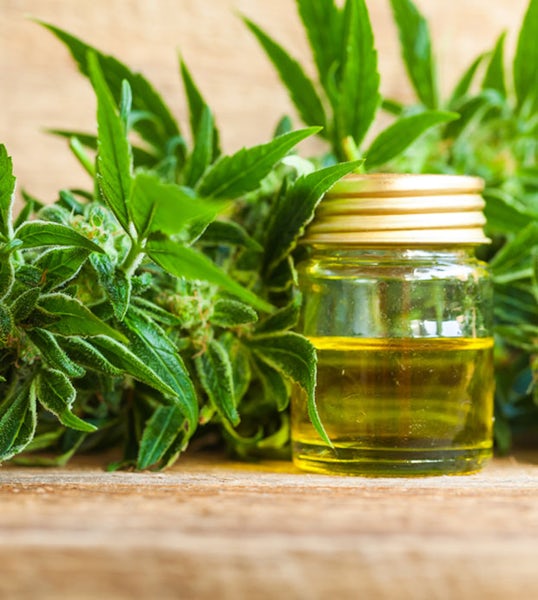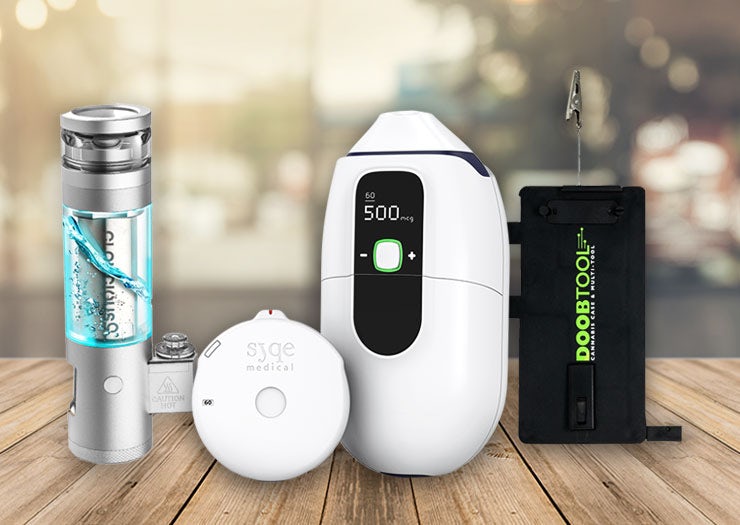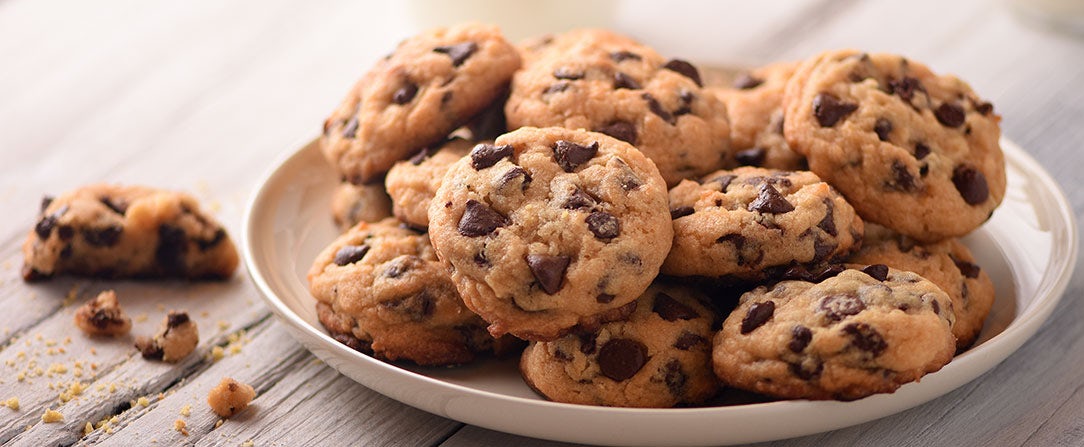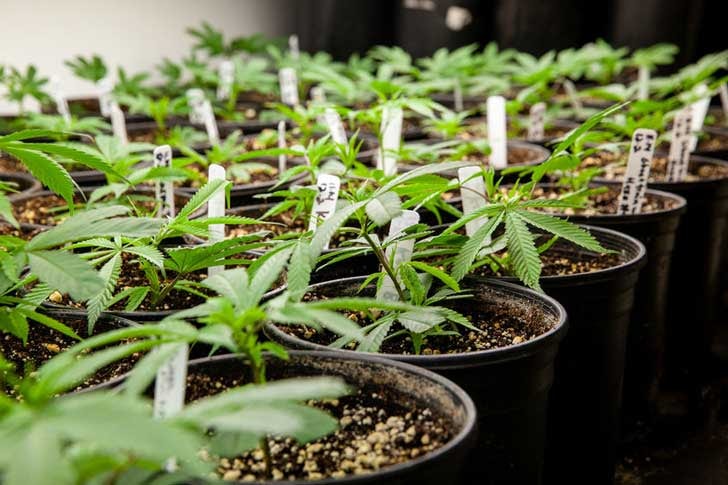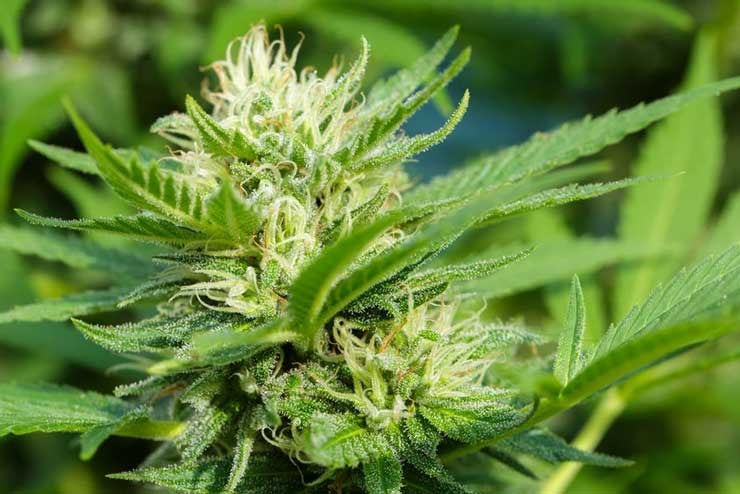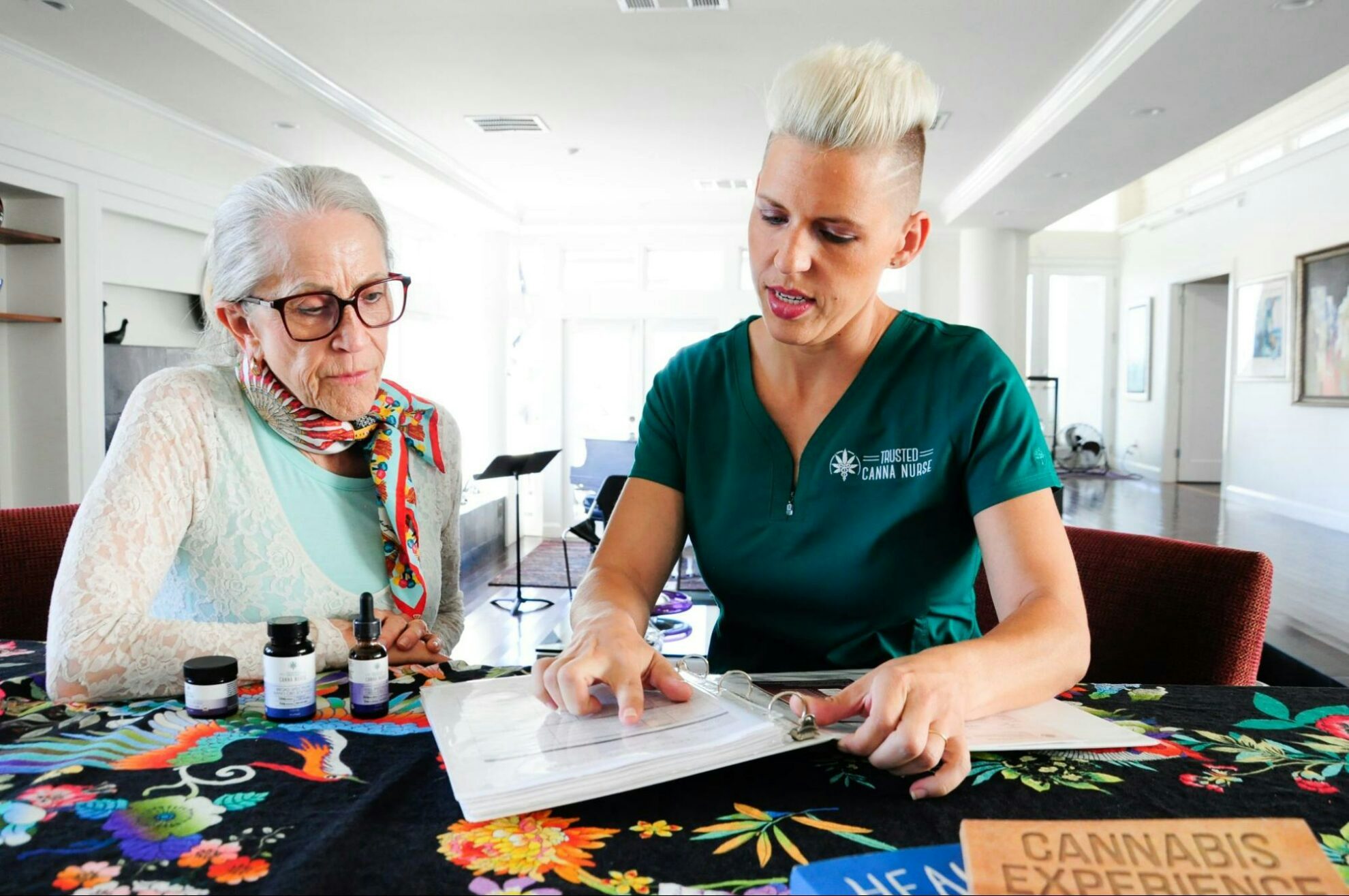CBD is rapidly becoming a mainstream phenomenon. From tinctures to cosmetic creams and even beverages, the market seems full of products containing this ingredient.
It is not hard to understand why CBD is so popular: CBD oil, in particular, has many benefits and advantages, especially when it comes to treating a number of health conditions.
However, the dizzying number of new products on the market can be confusing, making it difficult to figure out which is the best one for you. There are a number of considerations to take into account when buying CBD, and it’s important to do some research into how products are made, what benefits CBD can provide, and its legal status in your region before buying and using CBD oil.
What is CBD Oil?
CBD, or cannabidiol, is a phytocannabinoid which was discovered by American scientist Roger Adams in 1940, and its chemical structure was elucidated by Raphael Mechoulam’s group in 1963. CBD can be derived from both cannabis and hemp. Hemp is the name of a group of cannabis varieties that are rich in fiber and produce fewer cannabinoids. It is defined by the EU as cannabis Sativa that contains less than 0.2% tetrahydrocannabinol (THC), the intoxicating ingredient in cannabis, and in the US as cannabis that contains less than 0.3% THC.
A regulatory exception in some countries, allowing the cultivation of hemp strains for industrial purposes, meant that with the discoveries of the medicinal properties of CBD, hemp strains were bred and crossbred to elevate the CBD percentage in them so it could be extracted and serve as raw material for a variety of products. This situation caused a regulatory void where the legality of CBD products is fairly vague and is constantly changing.
So what is CBD oil? Do not confuse CBD oil with hemp seed oil CBD oil is extracted from the entire hemp or cannabis plant, which distinguishes it from hemp seed oil, which comes from the seeds only. While hemp seed oil (sometimes simply called “hemp oil”) may provide a number of beneficial health benefits, it does not actually contain any cannabinoids, including CBD.
With the rising popularity of this product, an increasing number of people are asking, “What does CBD oil do?” One common concern regarding CBD oil is whether it will get you high. Hemp-derived CBD products contain only trace amounts of THC, which means they’re not intoxicating.
Additionally, studies have shown that CBD is not addictive: a 2017 report from the World Health Organization concluded that CBD “exhibits no effects indicative of any abuse or dependence potential.”
To bring some order to the CBD oil confusion, it’s important to understand that there are a few types of CBD extraction and all could be applied to all cannabis varieties: full-spectrum CBD, broad-spectrum CBD and isolate CBD. We’ll also go over the major CBD oil benefits
Full Spectrum CBD Oil
Full-spectrum CBD oil is a complete extract of the plant, meaning that it contains not only cannabidiol, but also other natural components generated through the extraction process, including other cannabinoids, flavonoids, and terpenes. Many of these additional components have their own therapeutic benefits and the entourage effect theory holds that they work even better when administered together.
This means that if full spectrum oil is extracted from a cannabis variety that contains 20% THC and 1% CBD, then the oil will preserve the full spectrum of compounds and thus contain the same ratio of THC and CBD from the original plant. Alternatively, if a full spectrum oil is extracted from a hemp variety with less than 0.2% of THC, then the resulting extracted oil will also contain no more than 0.2% THC.
A 2015 study found that full-spectrum cannabis extract, rich in CBD (17.9%) and low in THC (1.1%), is most effective in treatment compared to CBD isolate, specifically for inflammatory conditions. This observation was further established in a meta-analysis that examined the clinical benefits of CBD oil rich extracts vs purified CBD extract (isolate).
Broad Spectrum CBD Oil
Broad-spectrum CBD oil is a relatively new term for an extraction that isolates specific molecules and eliminates it from the rest of the oil. This means all traces of THC can be completely removed, even if the original plant only contained less than 0.2% THC.
CBD Isolate
An isolate extraction identifies a specific molecule in a cannabis plant and extracts only that specific molecule while removing everything else completely. In the case of CBD extraction, the result is pure CBD with no other cannabinoids, flavonoids, terpenes, or other compounds at all.
How is CBD Oil Made?
There are a few different CBD extraction methods.
Alcohol extraction is one popular method, where the plant is soaked in alcohol for a length of time, which extracts the CBD and other components into the alcohol. This is the same method of extraction which has been used in herbal medicine for centuries and is a very effective way to extract cannabinoids with minimal damage. However, although the alcohol acts as a suspension to protect these chemicals from denigration, it also dilutes their purity.
CO2 extraction, on the other hand, generally maintains the highest level of CBD purity. This method of extraction has developed in more recent years thanks to significant advances in technology in this area.
CO2 extraction works by applying liquid CO2 in combination with high temperature and extreme pressure to the hemp plant in order to extract these particular molecules.
CBD oil can also be extracted by using hydrocarbon. In this method, a hydrocarbon such as butane is used to heat the plant, causing it to release its oils.
How to Make CBD Oil at Home
There are some benefits to making CBD oil yourself, as opposed to buying pre-made, as it can save a considerable amount of money and ensures you know exactly what went inside the oil. However, the process can be lengthy and requires careful attention to ensure a good quality CBD oil is produced.
You can make CBD oil at home using either a high-CBD cannabis strain or hemp. There are two main methods of extracting CBD oil at home: oil or alcohol.
The Oil Method
What you need: high-CBD cannabis or hemp plant material, glass mason jar, a carrier oil (such as fractionated coconut oil or olive oil), large pot, towel, cheesecloth, and a glass storage bottle.
- Ensure the raw plant material has gone through the process of decarboxylation. To do this, bake at a temperature of 100°C for 90-100 minutes.
- Grind up the plant material and put it in a mason jar.
- Cover the plant material with a carrier oil, either fractionated coconut oil or olive oil is recommended. Adjust the amount of oil depending on how potent you want the end product to be (more oil means less potent).
- Tightly secure the lid on the mason jar.
- Take a pot and lay out a towel inside. Place the jar on top of the towel and fill the pot with water.
- Heat the water to at least 95°C. Cover the pot and let simmer for three hours.
- Turn off the stove and let sit for another three hours.
- Heat the mixture again for another three hours.
- Turn off the stove and let sit overnight.
- Strain the mixture through a cheesecloth, transfer to a storage bottle, and store the oil in a cool, dry place.
Alternatively, you can use a slow cooker set to 80°C instead. Simply add the plant material and oil directly to the slow cooker and let the mixture simmer for 24 hours, stirring occasionally.
The Alcohol Method
What you need: high-CBD cannabis or hemp plant material, ethanol alcohol, wooden spoon, straining bag or sieve, double boiler (can use a pot and a large glass bowl), and a glass storage bottle.
- Place the decarboxylated plant material in a ceramic or glass bowl. Cover with ethanol alcohol and stir for about 6 minutes. Then use a wooden spoon to extract the resulting resin.
- Place a straining bag or sieve in the bowl to filter out the solvent. Squeeze out as much extract as possible.
- In a double boiler, pour the extracted oil and heat on low until bubbles start to form. Allow oil to simmer for about 30 minutes or until the alcohol has evaporated completely. Stir and turn off heat.
- Once cooled, put the CBD oil into a storage bottle and keep in a cool, dry place.
A word to the wise before you get started: making your own CBD oil at home is a complex procedure, and takes some practice to become proficient. Also, without lab-testing your end product, there’s no way to ascertain the levels of active ingredients — so if you’re using the oil for medicinal purposes make sure to consult a health professional.
CBD Delivery Methods
These days, CBD is available in a plethora of forms: not just CBD oil, but also cosmetics, topical creams, powders, beverages, snacks, and tinctures. Although all are effective, the delivery method greatly influences how quickly effects are felt, so this is an important consideration when wondering how long it takes for CBD oil to work.
CBD oil can be taken by placing a few drops under the tongue. This is one of the most effective and fast-acting delivery methods as it allows the CBD to be absorbed very quickly through the small capillaries and tissues under the tongue.
Another effective method of consuming CBD is through ingestion, either by adding drops of CBD oil to food or drinks or buying edible products which are already CBD infused, such as gummies and lollipops, or pre-prepared beverages. Not only is this a pleasant way of taking CBD, but it also helps to track and control dosages.
CBD can also be topically applied, typically mixed into creams or balms and absorbed through the skin. This is an easy application method and most effective in treating acne, sore muscles, arthritis, or migraines.
CBD Health Benefits
Pain. There are many CBD oil benefits for one’s health. One of its primary medical applications is the use of CBD oil for pain relief. A 2012 study found that cannabinoids target glycine receptors, suppressing inflammatory and neuropathic pain.
Epilepsy. Cannabidiol can also be used in the treatment of epilepsy: certain CBD oil formulations have been FDA approved to treat this condition. These FDA approvals referred to the treatment of two specific, severe forms of epilepsy, Lennox-Gastaut Syndrome and Dravet Syndrome, with high-purity CBD oil with THC levels of less than 0.15%.
Addiction. Another use for CBD is in the treatment of addiction. One study found CBD reduced nicotine cravings in tobacco smokers, while further promising research points to CBD as a useful tool for treating opioid addiction disorders.
Anxiety. The list of CBD oil benefits relates to not only physical health issues but also mental health problems, notably anxiety and sleep disorders. Preliminary research shows that CBD can be helpful for those with anxiety disorders such as PTSD, OCD, general anxiety, and social anxiety, as well as sleep disorders like insomnia. Further study is needed to fully explore these benefits, but evidence suggests that CBD could be a useful tool in managing these conditions.
Cancer. Scientific evidence has found that CBD significantly helps to prevent the spread of cancer. Cannabinoids have long been known to have anti-proliferative and pro-apoptotic effects which stop cancer tumors from growing and spreading throughout the body. Their use in medicine has been limited in the past by the reluctance to use substances containing THC, and therefore CBD provides a good solution to this problem.
Type 1 Diabetes. CBD has anti-inflammatory properties, meaning it can be used to treat type 1 diabetes. This chronic disease results from the immune system attacking the pancreas, causing it to become inflamed. As an anti-inflammatory, CBD can reduce inflammation in the pancreas, thus helping to treat the cause of this condition.
Acne. Another benefit of the anti-inflammatory nature of CBD is in the treatment of acne. These properties along with other effects of CBD lower the production of sebum, the fatty liquid produced by skin cells that makes the skin oily, causing acne.
Alzheimer’s Disease. CBD could have a role to play in the treatment or management of Alzheimer’s disease. Initial research has found CBD can hinder the development of social recognition deficit in Alzheimer’s patients. This means CBD could help people in the early stages of this disease retain the ability to recognize the faces of people that they know, making a huge difference to their quality of life.
CBD Oil Legality & Regulation
Regulations regarding CBD (cannabidiol) vary worldwide, with it being legal for therapeutic use in a number of countries.
In Canada, the use of CBD products has been legal for both medical and recreational purposes since 2018.
It is classified as a legal medical product in Sweden, the UK, Australia, and New Zealand. Products containing cannabidiol are available with a doctor’s prescription in these countries.
In Switzerland, CBD and other cannabis products containing less than 1% THC are completely legal.
The United Nations does not list cannabidiol as a drug or psychotropic substance on any of its treaties, but the World Health Organization recommended in 2018 that this remained the case, leaving it open for use in a therapeutic context.
In the United States, the situation is a little more complex. CBD extracted from high-THC cannabis strains is a Schedule I controlled substance, and so is illegal to sell, buy or use, even for medical purposes on a federal level. There are some exceptions to this, specifically in certain states where medical and recreational cannabis is allowed. However, restrictions on such cannabis-derived CBD products exist even in some of these states, notably California, where laws are currently under review.
Hemp-derived CBD containing 0.3% or less THC, on the other hand, was delisted as a federally scheduled substance in 2018. It is now legal under certain circumstances, for example as part of approved prescription medicines, or as an ingredient in cosmetics.
Fundamentally, it is essential to check the local laws relating to use of CBD before buying or using any CBD product.
Before You Buy CBD Oil
CBD oil is a potent substance with powerful effects. This means it has a range of health benefits and can be useful in helping treat a number of conditions. It also means that it is important to make an informed choice before purchasing CBD oil or any other CBD products.
- Check if the product has been tested by a third-party accredited laboratory. These results tell you important details such as the cannabinoid content profile, which indicates how much CBD is in the product and therefore in each serving. Test results will also indicate if contaminants such as heavy metals are present and in what concentration, as well as whether beneficial terpenes are present.
- Check the other ingredients, to make sure that the CBD oil doesn’t contain any other components which may be harmful, particularly in the context of a medical condition.
- Read reviews from other customers — these can be very insightful and, whether positive or negative, aid in making the best decision.
When it comes to how to use CBD oil, it is important not to take higher doses which your body may not be used to. To avoid this, start by taking small doses and then increasing these incrementally over time until you reach the recommended dosage.
Sign up for bi-weekly updates, packed full of cannabis education, recipes, and tips. Your inbox will love it.

 Shop
Shop Support
Support